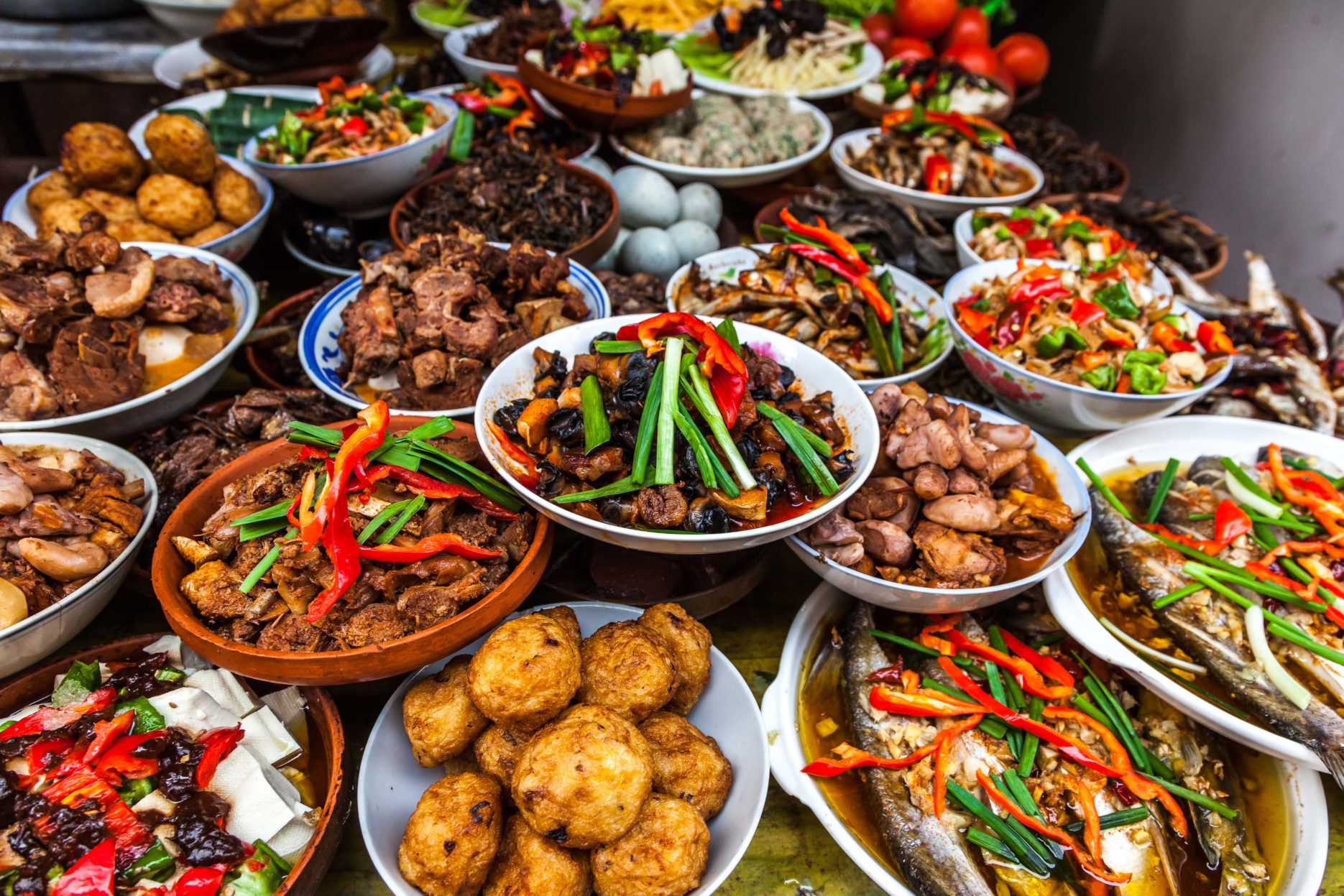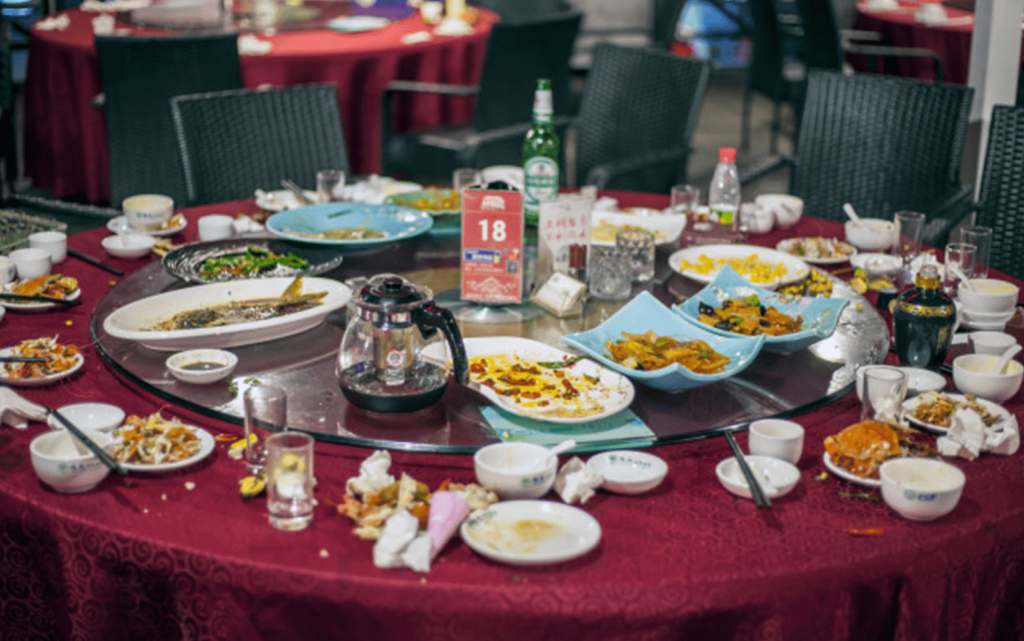
The first time I set foot in China, back in 2011, I was totally unaware of the country’s dining culture and habits.
Just a few days after my arrival, I was invited to a “welcome dinner” – my very first dinner with locals – held by several faculty professors. Little did I know that the occasion was going to be some kind of epiphany to me. The professors started to order innumerous dishes until, puzzled by the huge amount of untouched food still lying on the table, I told them that it would be wise to stop ordering. One of the professors replied: “入乡随俗”, that is, “When in Rome, do as the Romans do”. Back then, I was in Shanghai but the idea still applied – I should follow the local customs.
Chinese dining habits vs the Clean Plate campaign’s mission
Chinese culture dictates that ordering extra dishes and leaving food behind are ways to demonstrate the host’s generosity towards friends, business partners, family and, in general, important guests. In China, the so-called “N+1 点餐模式” or “N+1 ordering mode” is paramount: if you’re a group of ten people, you should order eleven dishes.
This method is at the heart of Chinese dining culture – or shall I say it used to be…?
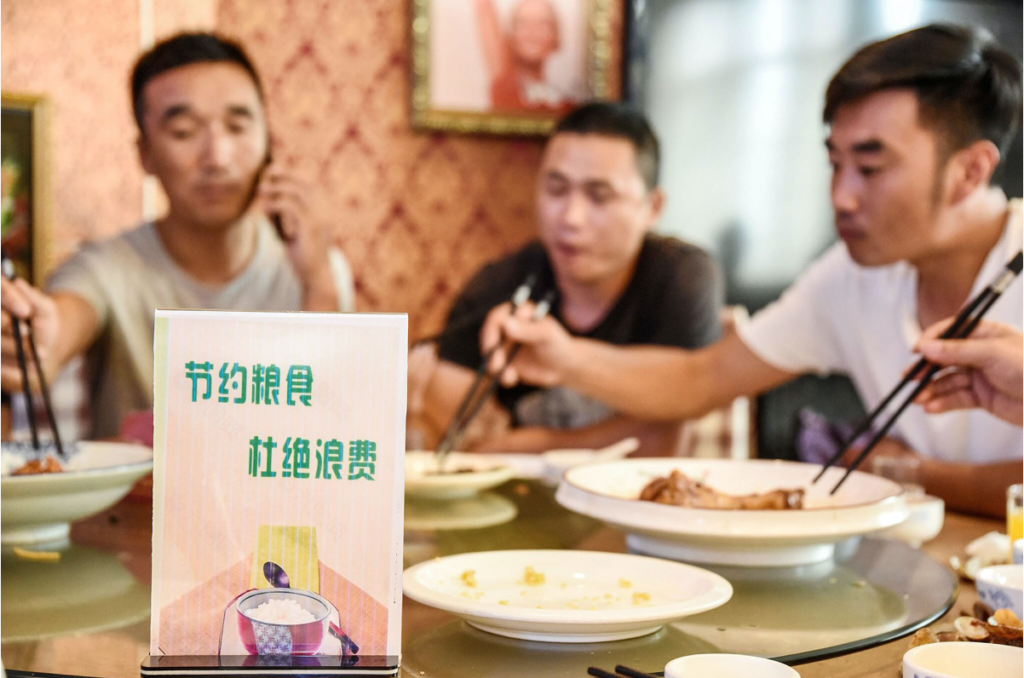
Recently, Xi Jinping launched an austerity campaign, the so-called “光盘行动” or “Clean Plate Campaign”, aimed at fighting one of the country’s greatest enemies: food waste. Austerity campaigns are nothing new in China, in fact, they were quite common during the Maoist era when a great emphasis was put on frugality and citizens were encouraged to “eat only two meals a day”. An austerity campaign, similar to the current one, was launched more recently in 2013 under the slogan “I’m proud of my clear plate”.
However, the 2020 initiative seems to carry a special urgency. Why is that so?
Well, firstly this is because approximately 38% of food at Chinese banquets is thrown away, according to figures shared by state media.
In addition, mass flooding which wiped out crops across the country, the COVID-19 pandemic, as well as the rising tensions between Beijing and the U.S. have contributed to “sounding the alarm”.
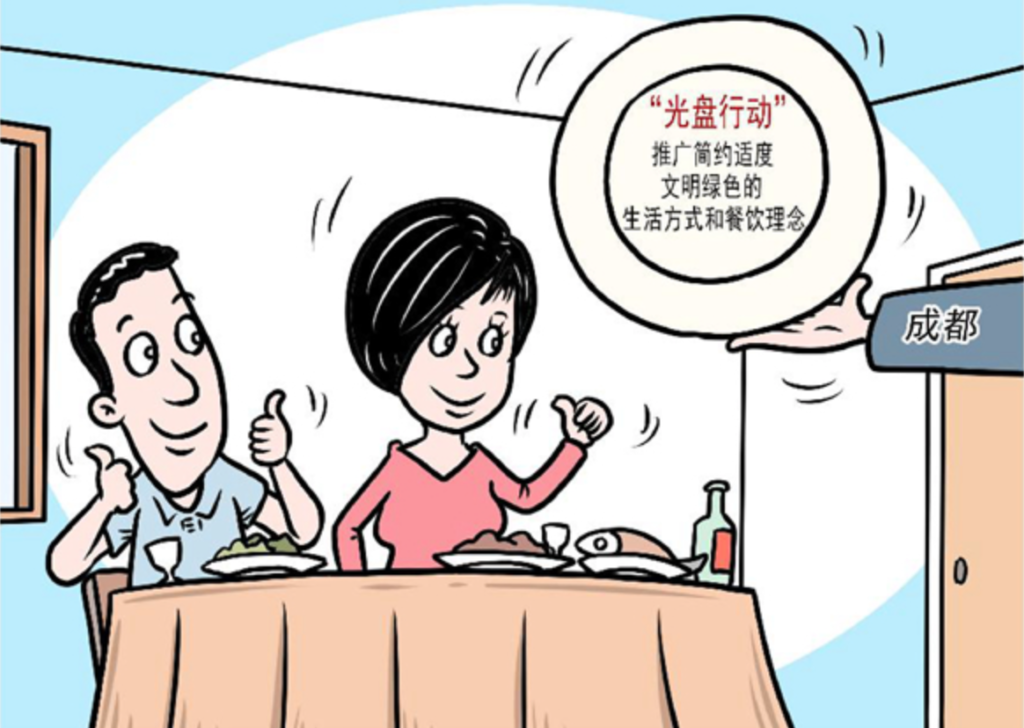
Xi has called for more discipline in dining habits and stressed the importance of self-reliance in these times of geopolitical turmoil.
“Chinese people should maintain a sense of crisis about food security”
“The amount of food that goes to waste in China is shocking and distressing”
Chinese President Xi Jinping
The reaction of Chinese netizens
The “Clean Plate Campaign” has been receiving a lot of attention on Chinese social media.
Platforms such as Weibo have been flooded with comments from netizens. Some have positively welcomed the initiative and several anti-food waste hashtags have emerged. For instance, the hashtag #光盘行动# (Clean Plate Campaign) has already gained more than 812 million views. Another hashtag, #光盘行动挑战大赛# (Clean Plate Big Challenge), started by the newspaper People’s Daily had more than 660 million views as of October 4.
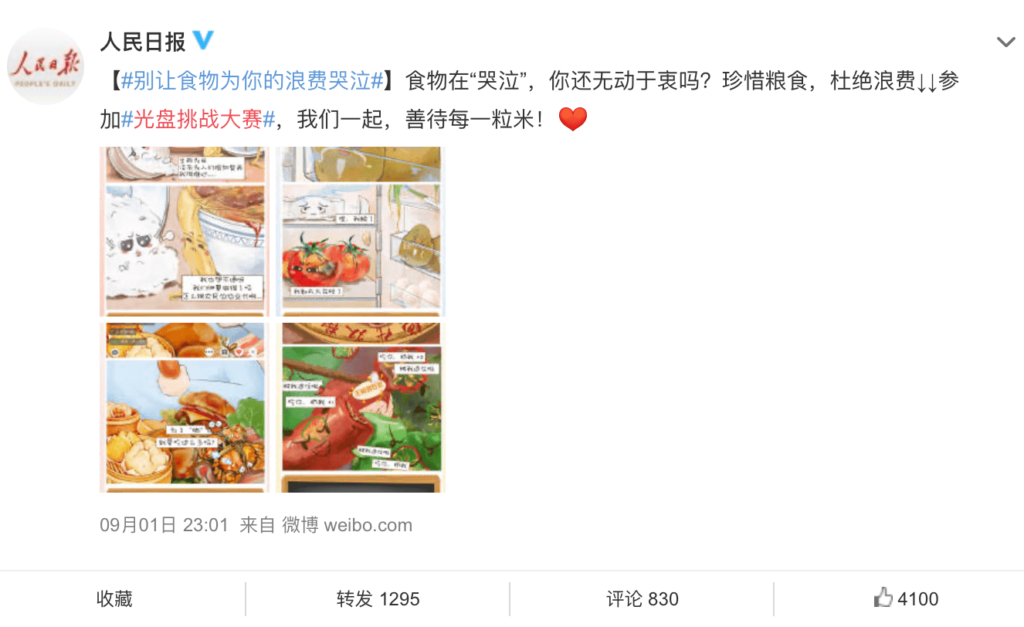
A lot of netizens, however, have complained about the initiative and openly condemned it. Some of them were critical about the sumptuous banquets held by government officials and called for a more frugal attitude at the Party’s top levels.
Downfall of the “big stomach stars” phenomenon
The campaign has also cast doubt on a popular business model which has been thriving in China in the past 10 years: the so-called “大胃王” or “big stomach stars”, video bloggers who have risen to fame thanks to livestreaming shows in which they eat huge quantities of food.
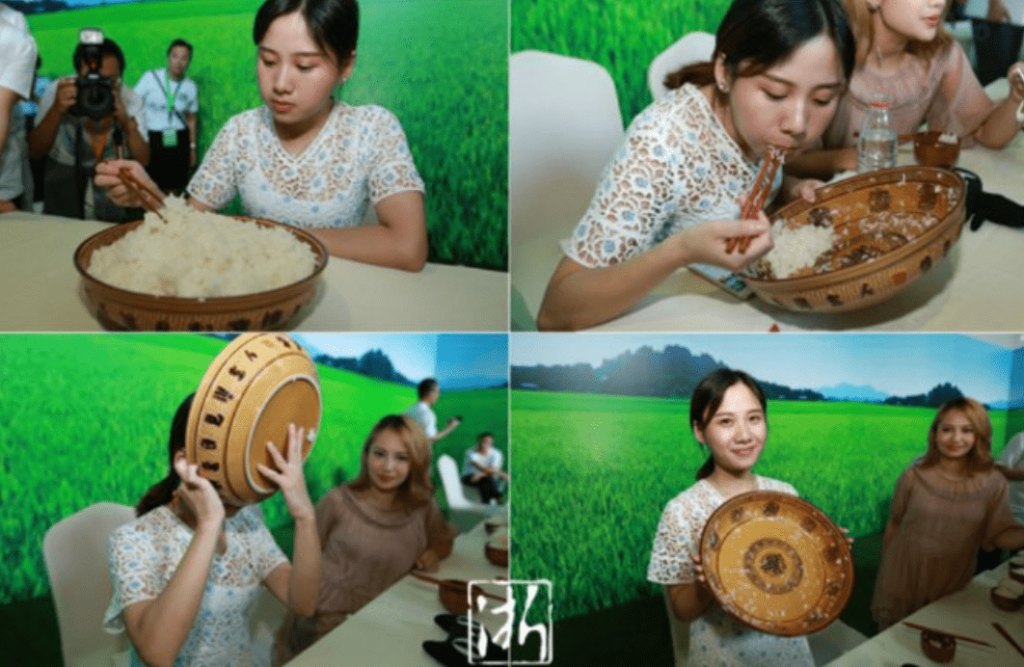
China’s state-run broadcaster, CCTV, and the biggest social media platforms, including Douyin, have been adopting measures to prevent netizens and influencers from posting binge-eating related content. Most of the “big stomach stars’” videos are being blurred on social media. The platforms have even stated that they will punish users who waste food while livestreaming.
Is China ready to face this challenge?
On several occasions, Xi Jinping has stressed the importance of strengthening legislation and supervision. I personally believe that, in a country like China, an anti-food waste campaign is not only necessary, but also urgent.
Unfortunately, eradicating old habits – to quote Mao’s slogan during the Cultural Revolution – is no easy task.
China has a deep-rooted socio-cultural substratum and a unique geodemography. Moreover, as is common in China, it may be difficult to transfer regulations and initiatives from the national to local level.
Will Xi Jinping succeed in this challenging mission? Posterity will judge…
If you enjoyed this piece and want to contribute an article to Dao, please get in touch with the team.




